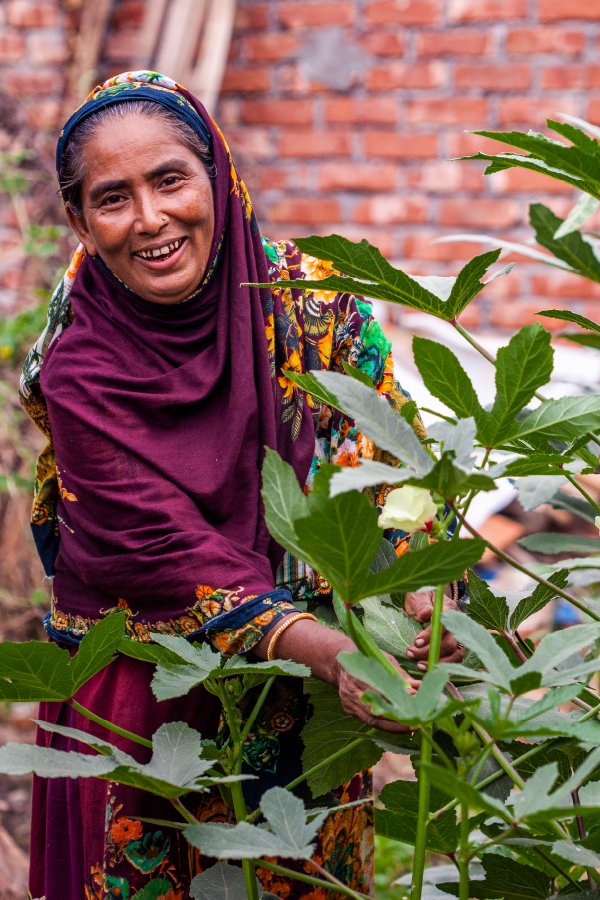
When COVID-19 first hit Mazeda Begum’s informal settlement in Dhaka, Bangladesh’s sprawling capital, she and her husband had been making ends meet with a small tea stall and a mix of informal trades. Although starting the tea stand had improved their living conditions, their income was still barely enough to buy basic food for the family, let alone ensure a nutritious diet for their five children.
Like many who live off the informal economy, Mazeda and her family had no financial buffer when lockdown restrictions forced them to close their stall, and other jobs were hard to come by. On top of that, her husband had fallen gravely ill, leaving Mazeda as the sole breadwinner for their family of seven.
Rather than despair, Mazeda, who grew up in a village before migrating to Dhaka, tapped into her rural roots. Ever since she was a girl back in Chanpur, she had loved farming, and the time had come to put that passion to use in a new environment. All over Dhaka, urban gardens have sprung up during the pandemic, with residents using back patios, vacant plots and riverbanks to build little food oasis in the middle of the dense city of 22 million people.
Mazeda followed suit and has since set up a thriving organic garden that yields healthy food for her family and provides affordable produce for her community.
“It is a great privilege to be a farmer,” she says, adding that the training she received from FAO showed her new techniques to improve her production. “I had no understanding of organic pest management or how to prepare organic fertilizers. [But] now I know how to use them and grow organic vegetables for my family.”
Her fresh, pesticide-free vegetables are in high demand in her neighbourhood and she earns about BDT 1 500 per month from it, which she uses to send one of her kids to school – an opportunity she herself never had. In addition, she is saving money by not buying vegetables, which she is setting aside to buy a house in the future.
Her success has encouraged others to try their hand at farming, too. But she’s most proud of the example she is setting for her family.
FAO’s COVID-19 relief project for low-income urban households in Bangladesh was funded by the Embassy of Sweden in Bangladesh.